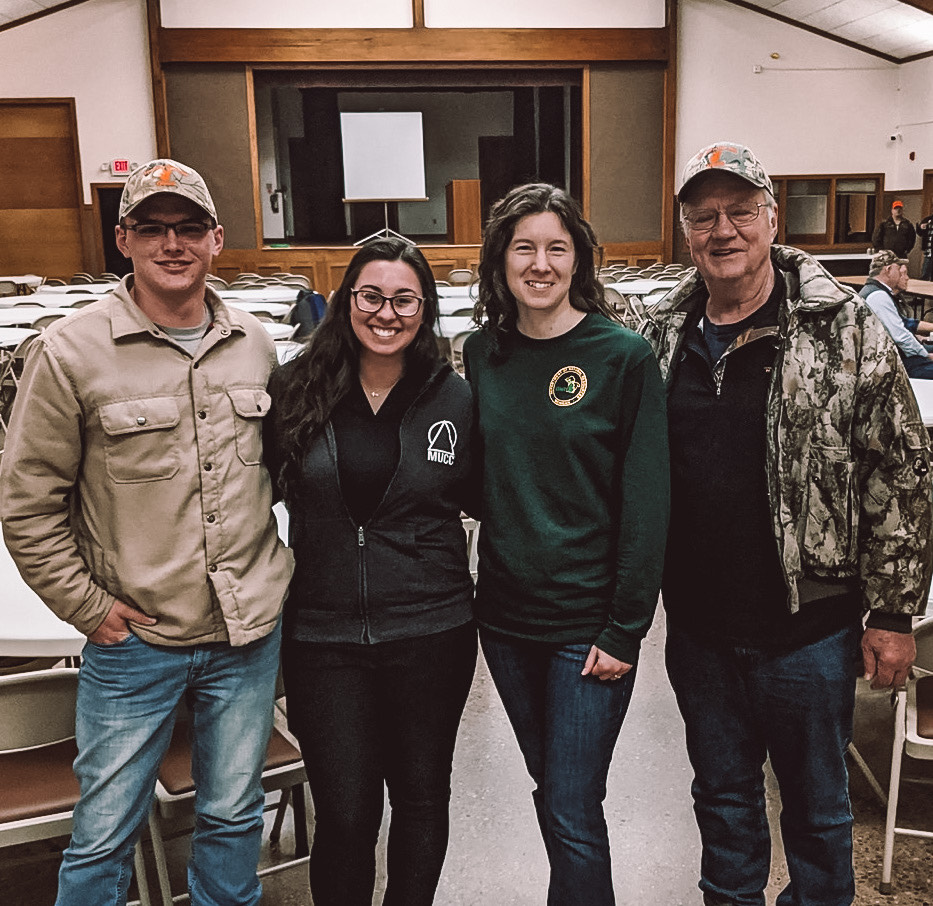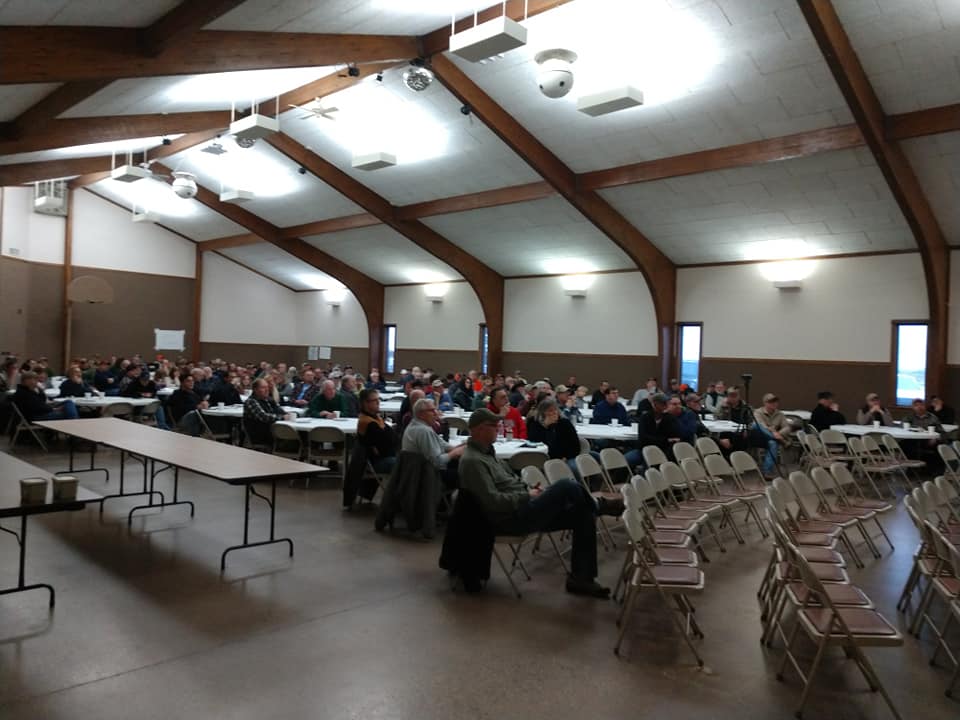Wildlife Cooperatives & MDNR Collaborate on Wildlife Rendezvous
Wildlife cooperatives have long been known for their collaborative conservation efforts. Members make informed management decisions by conducting habitat surveys, completing habitat projects, setting and carrying out harvest goals, collecting harvest information and engaging with industry professionals on all of the above. Many cooperatives also participate in community outreach to keep the public informed on state wildlife issues and how land owners can better manage their properties.

Another NE Michigan Cooperative (Ogemaw Hills) and the Northern Jack Pine QDMA Branch were in attendance at the Wildlife Cooperative Rendezvous. Pictured here with Morgan Jennings (MUCC) and Emily Sewell (DNR).
The Anchor Creek Wildlife Cooperative has been active in its management and community since 2017. There are currently 1,900 acres of private land in Northeast Michigan involved in this group. Each year, Anchor Creek hosts an open educational event and for 2020 they partnered with the Truax Cooperative and the Michigan Department of Natural Resources (MDNR). Over 120 people attended the 2020 event.
Perry Wood, a leader of the Anchor Creek Wildlife Cooperative, explained that bringing the public together with cooperatives is important and the education component is something everyone can benefit from in a shared experience.
“The cooperative has received money through state-funded grants for habitat projects. Our members, who put on this event, put money forward to make it happen. This is our way of giving back after the support we have received.”
The agenda included Jesse Randall (MSU Extension Forest Biomass Innovation Center) who discussed the benefits of mast species to wildlife, planting and maintenance; Wayne Sitton (Turtle Lake Club Wildlife Manager) answered FAQ’s of deer, habitat/food plots and disease; and myself (Wildlife Cooperative Coordinator) to highlight the benefits of cooperative management.
The local conservation district and county Conservation Officers also spent time explaining their role and how they hope to continue their partnership with cooperatives. MDNR also had staff at a mobile check station so hunters could have samples from their deer sent in for disease testing.

Over 120 individuals from different areas in Michigan were in attendance.
MDNR’s Wildlife Health Specialist for the northern lower peninsula, Emily Sewell, was a catalyst for this year’s event.
“The Anchor Creek and Truax Creek wildlife cooperatives are excellent examples of hunters and agricultural landowners coming together to communicate about deer and habitat management and experiencing the mutual benefits. By partnering with these cooperatives on their annual educational event, the DNR can help to highlight their successes and promote the benefits of cooperatively managing deer to other landowners in the northeast lower peninsula. The Anchor Creek and Truax Creek co-ops are concerned with the health of deer and are a great partner in sharing the advantages of antlerless harvest, including reducing the risk of transmitting bovine tuberculosis, a density-dependent disease.”
Emily has been an incredible support to our northeast Michigan cooperatives and landowners as they continue to learn about disease management and the importance of collaboration across stakeholder groups – including hunters and agricultural producers. These efforts are key to the communication and education of the issues that wildlife face.
Thank you to everyone that worked hard to make this event possible! Stay tuned for information on upcoming events from the Michigan Wildlife Cooperatives Program.
The Michigan Wildlife Cooperatives Program is supported by Michigan United Conservation Clubs, Michigan Department of Natural Resources, Quality Deer Management Association and Pheasants Forever.
The post Wildlife Cooperatives & MDNR Collaborate on Wildlife Rendezvous appeared first on Michigan United Conservation Clubs.
Recent Posts



